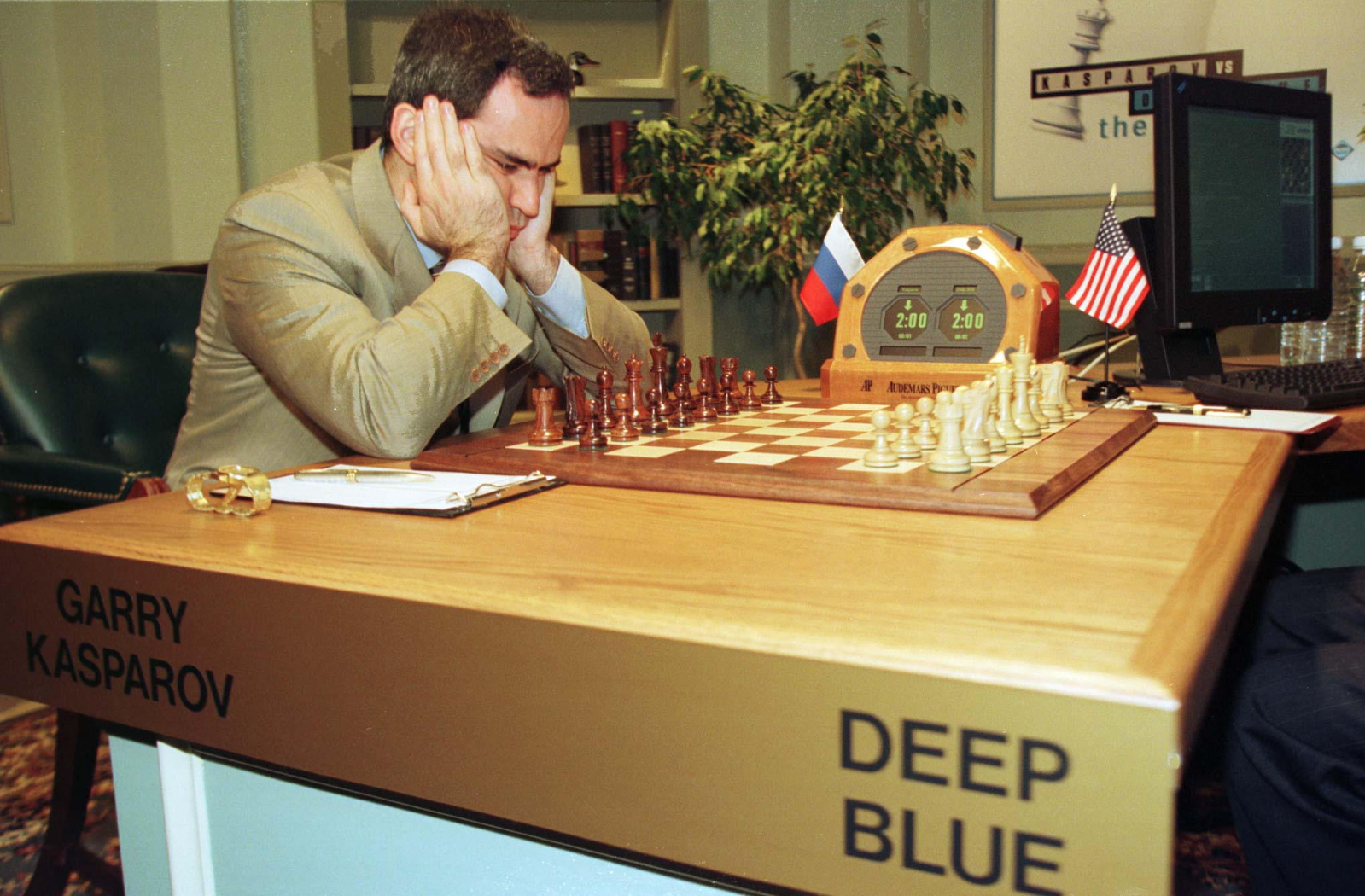Scientists from two companies working in the field of artificial intelligence have achieved great success. They taught the computer how to negotiate, form alliances, betray and deceive. He also speaks humanely.
A quarter of a century ago, an event occurred that became famous all over the world. The Deep Blue supercomputer built by IBM – with computing power that put it roughly in the middle of the list of the 500 most powerful machines of the time – beat famous chess master Garry Kasparov in the glare of cameras: 3.5 to 2.5. Thus, Deep Blue became the first computer system to defeat a world champion in a match with standard time control.
Read also: deep neural networks. They learn like a human, only better and more thoroughly
Deep Blue defeats Kasparov using the “Strength Method”
The victory of a computer over a person was described as an almost epochal event, because for the first time artificial intelligence defeated a person (the match against Kasparov was intended for a play, and part of Deep Blue went to the National Museum of American History in Washington). However, the IBM computer was not at all intelligent in a human way. He wins thanks to the use of algorithms that continuously evaluate whether, for example, it is more important to secure the position of the king or to gain an advantage in the center of the field thanks to a pawn move.
The machine did this on the basis of data collected from thousands of major chess games, gaining its advantage over a human primarily through what is referred to in computer science as “brute force” or “global search”. Thanks to its huge computing power, Deep Blue analyzed all possible solutions to the task (in this case, the arrangement of chess pieces) in order to choose the one that gave an advantage and led to victory.
In some ways, however, chess is an easy game for computers: it does not require communication with an opponent, it is governed by clear rules and everything that happens on the board is visible to both sides, starting with the initial arrangement of the pieces. The incomparably more difficult task for machines is games where we don’t have complete data, the opponent may be cheating, and you also need to communicate with the game participants. That is, doing things that seem completely unattainable even to the most powerful hardware and most sophisticated computer software. Or rather, they did, because two scientific publications in the last two issues of the prestigious weekly magazine “Science” announce a huge breakthrough in this area.
DeepNash knows how to cheat
Scientists working in the field of artificial intelligence decided to take on two classic games, because at least they are several decades old board games. Since their digital versions have also been created, including those that give the opportunity to play online, machines can try their hand against human opponents.
Researchers from the British company DeepMind Technologies, which has been owned by Google since 2014, It is in the latest “scientific” computer program DeepNash. Its name refers to the Nobel Prize-winning American mathematician and economist John Nash, whose story was depicted in the popular film A Beautiful Mind. Deal with for example game theory and its presentation of the Nash equilibrium. In simple terms, it consists in the fact that with fixed strategies of opponents, it is not profitable for any of the players to change their strategy. Thus, the player makes the optimal solution due to the actions of other players.
DeepNash uses this concept, as well as learning neural networks and other complex tools from the frontier of computer science and game theory. Thanks to them, he was able to beat the game called Stratego not only other computer programs, but above all to be among the top three human players on Gravon’s online platform (84 percent win rate). This is quite an achievement, because so far computers have only managed to reach the level of human strategists.
Read also: A new era of board games
And this game raises the bar very high at the beginning of the game, because on the board you can only see the starting position of the opponent’s pieces, but it is not known what is behind each of them, that is, what strength a particular piece has (therefore there are 1066 Possible starting positions for both players). What kind of piece is revealed only in “fighting”, i.e. when one enters a square occupied by an opponent. In strategy, there are at least a few other gameplay elements that make it possible to outwit and outwit the other player. This is doing things that are a big obstacle to artificial intelligence.
Cicero talks and deceives people
Perhaps an even more difficult task has been set out by scientists working at Meta AI, Facebook’s artificial intelligence lab (What they write about in the previous issue of “Science”.). They took the diplomacy board game “into the workshop”. It takes place in Europe at the beginning of the 20th century, where several countries are vying for hegemony. The winner is the one who, thanks to the clever movements of the troops, captured the appropriate number of “supply centers”. The essence of “diplomacy”, however, is not clever moves on the board, but negotiations with the few other players. You have to form alliances and betray at the right time to gain an advantage. Therefore, in online versions of Diplomacy, negotiation rounds take place in chat windows.
Created by scientists from Meta AI, a computer program called Cicero each time not only analyzed and tried to understand the motivations of human players, but also tried to inspire their confidence. And he had to do this by communicating with them in chat (using simple human language), where he made alliances and suggested various steps. After that, he betrayed him, predicting betrayals.
Cicero participated in 40 online Blitz matches (with a negotiation round limited to 5 minutes). He was among the 10%. The best human players who have played at least one game. He also won a mini-tournament of 21 players (each of whom participated in six matches). One of Cicero’s most amazing accomplishments turned out to be the exchange of nearly 5.3 thousand words with people. chat messages. And only one person at one time suspected that he was dealing with a computer bot.
As scholars write in Science, teaching Cicero to use natural language and respond appropriately to proposals, as well as to make them, was the greatest challenge. Interestingly, the software sometimes made mistakes while communicating, but they also appeared to be people.

Echo Richards embodies a personality that is a delightful contradiction: a humble musicaholic who never brags about her expansive knowledge of both classic and contemporary tunes. Infuriatingly modest, one would never know from a mere conversation how deeply entrenched she is in the world of music. This passion seamlessly translates into her problem-solving skills, with Echo often drawing inspiration from melodies and rhythms. A voracious reader, she dives deep into literature, using stories to influence her own hardcore writing. Her spirited advocacy for alcohol isn’t about mere indulgence, but about celebrating life’s poignant moments.










